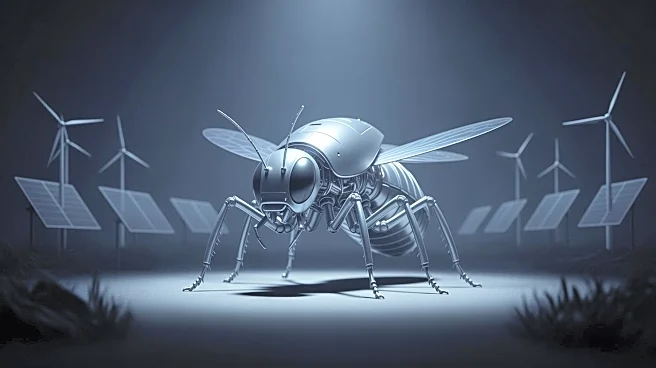What's Happening?
Inseco, a South African insect agriculture startup, has ceased operations due to persistent power outages and operational challenges. Founded in 2018, Inseco aimed to produce protein meal, oil, and fertilizer from black soldier fly larvae. Despite raising
$5.3 million in seed funding to scale its facility, the company faced significant setbacks, including four-hour power outages that disrupted operations and increased costs. These outages, known as 'loadshedding,' are common in South Africa, where power companies cut electricity to prevent grid failure. Inseco's inability to maintain consistent operations led to the loss of valuable agreements and staff, ultimately forcing the company to sell its assets.
Why It's Important?
The closure of Inseco highlights the challenges faced by the insect agriculture industry, particularly in regions with unstable power supplies. Insect protein is considered a sustainable alternative to traditional animal feed, offering environmental benefits such as reduced greenhouse gas emissions and lower resource consumption. However, operational challenges like power outages can hinder the industry's growth and investor confidence. The situation underscores the need for reliable infrastructure to support innovative agricultural practices and the potential impact of macroeconomic factors on emerging industries.
What's Next?
The insect agriculture industry may need to reassess its strategies to overcome operational challenges and improve investor confidence. Companies might explore alternative energy solutions or diversify their operations to mitigate risks associated with power outages. Additionally, the industry could benefit from increased collaboration with government agencies to address infrastructure issues and support sustainable agricultural practices. As other insect protein companies continue to develop, the lessons learned from Inseco's experience could inform future strategies for growth and resilience.
Beyond the Headlines
Inseco's closure raises broader questions about the sustainability and scalability of insect agriculture. The industry's reliance on stable infrastructure and investor support highlights the importance of addressing systemic challenges to ensure long-term viability. Furthermore, the ethical considerations of using insects for protein production may continue to be a topic of discussion as the industry evolves.
















